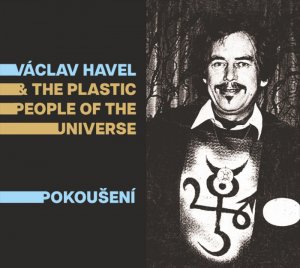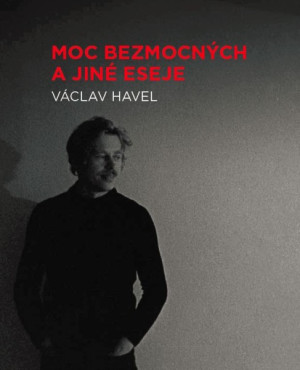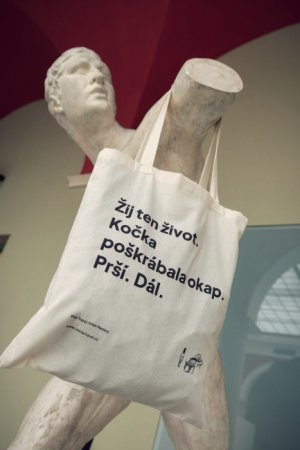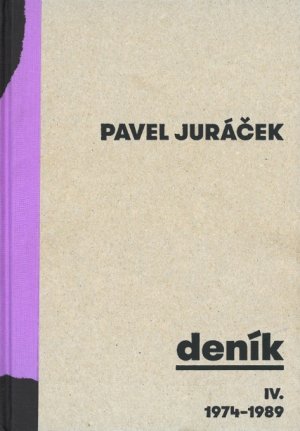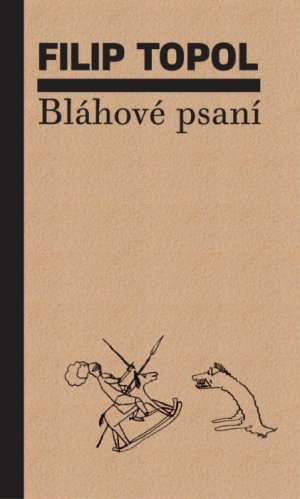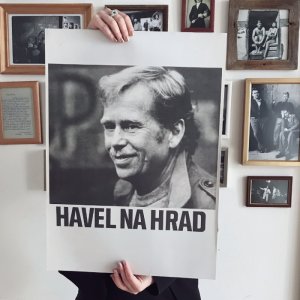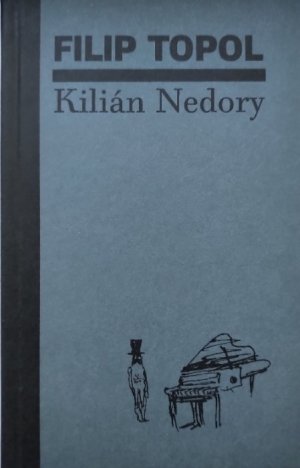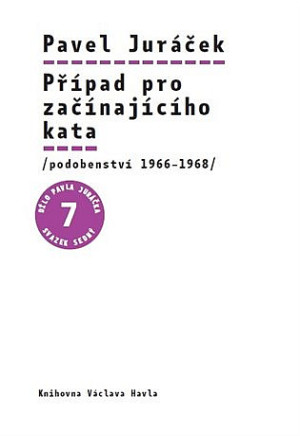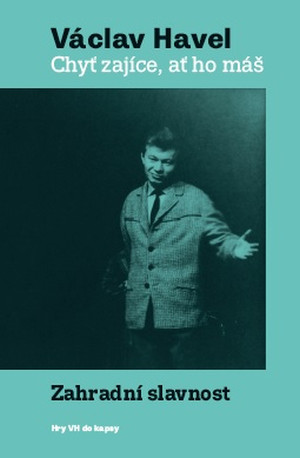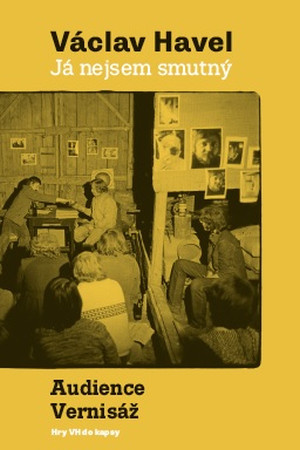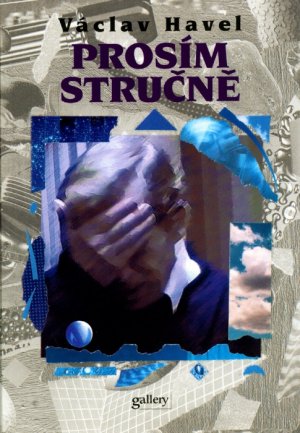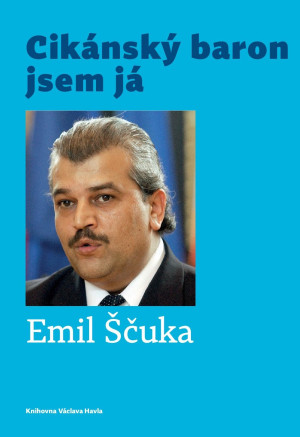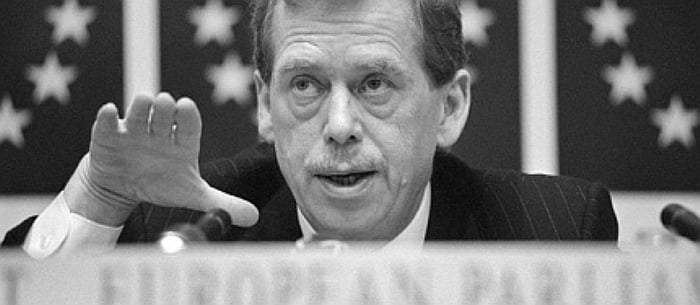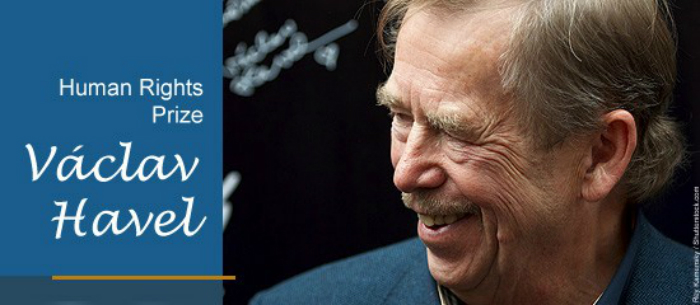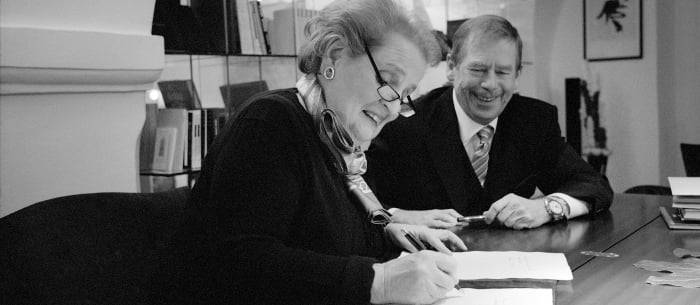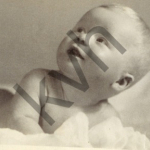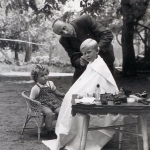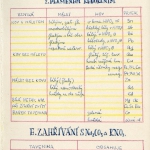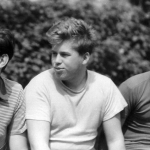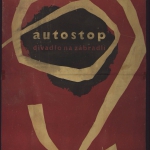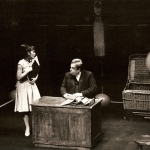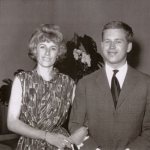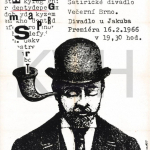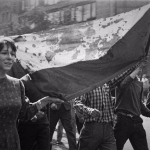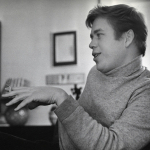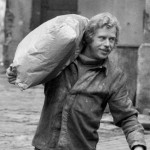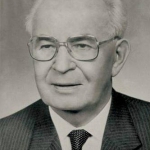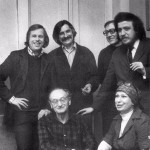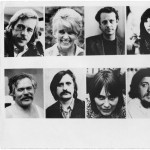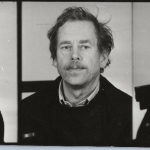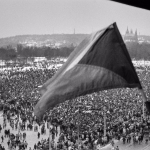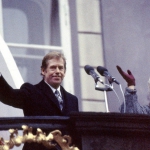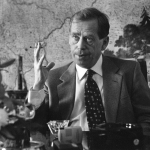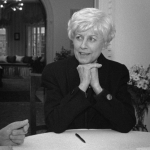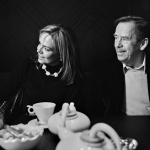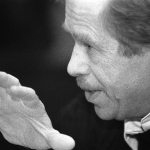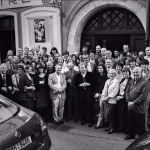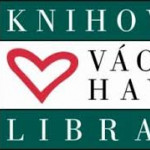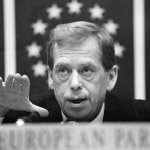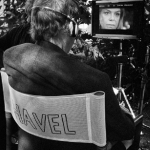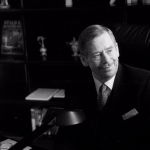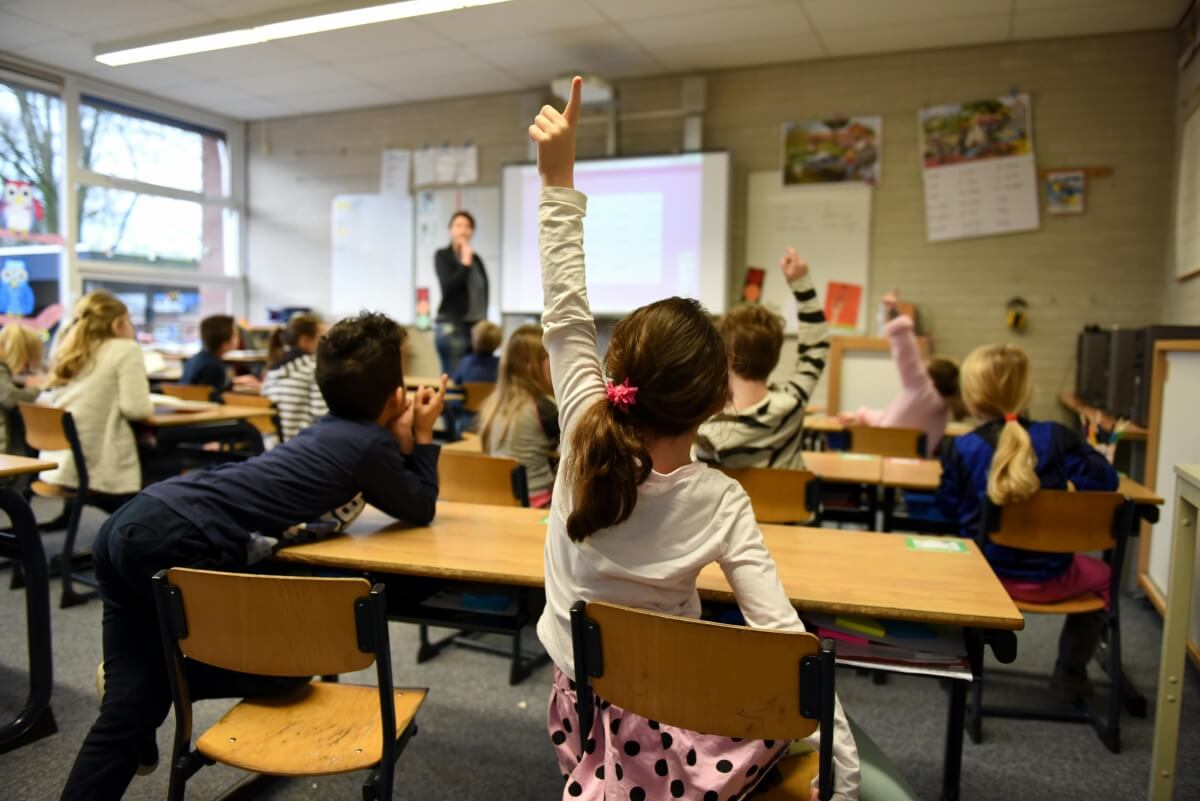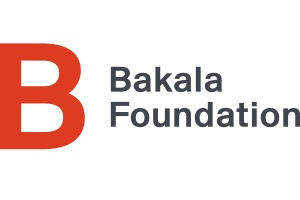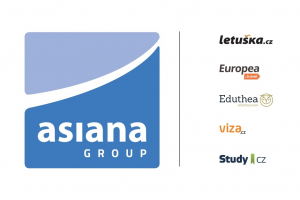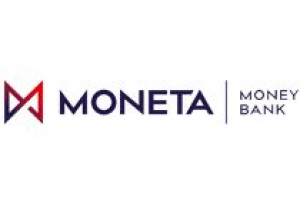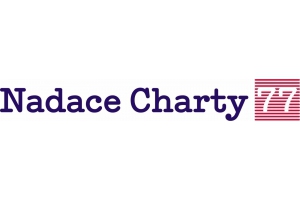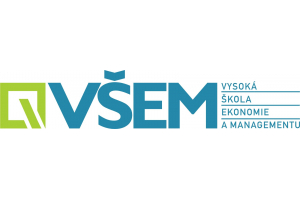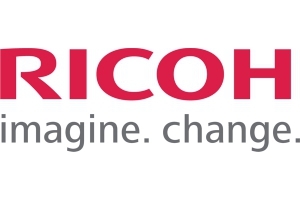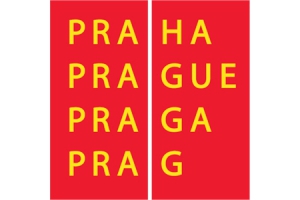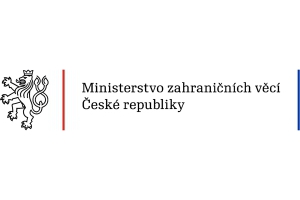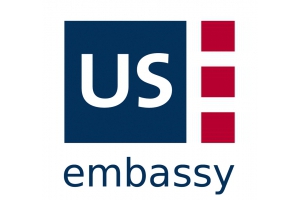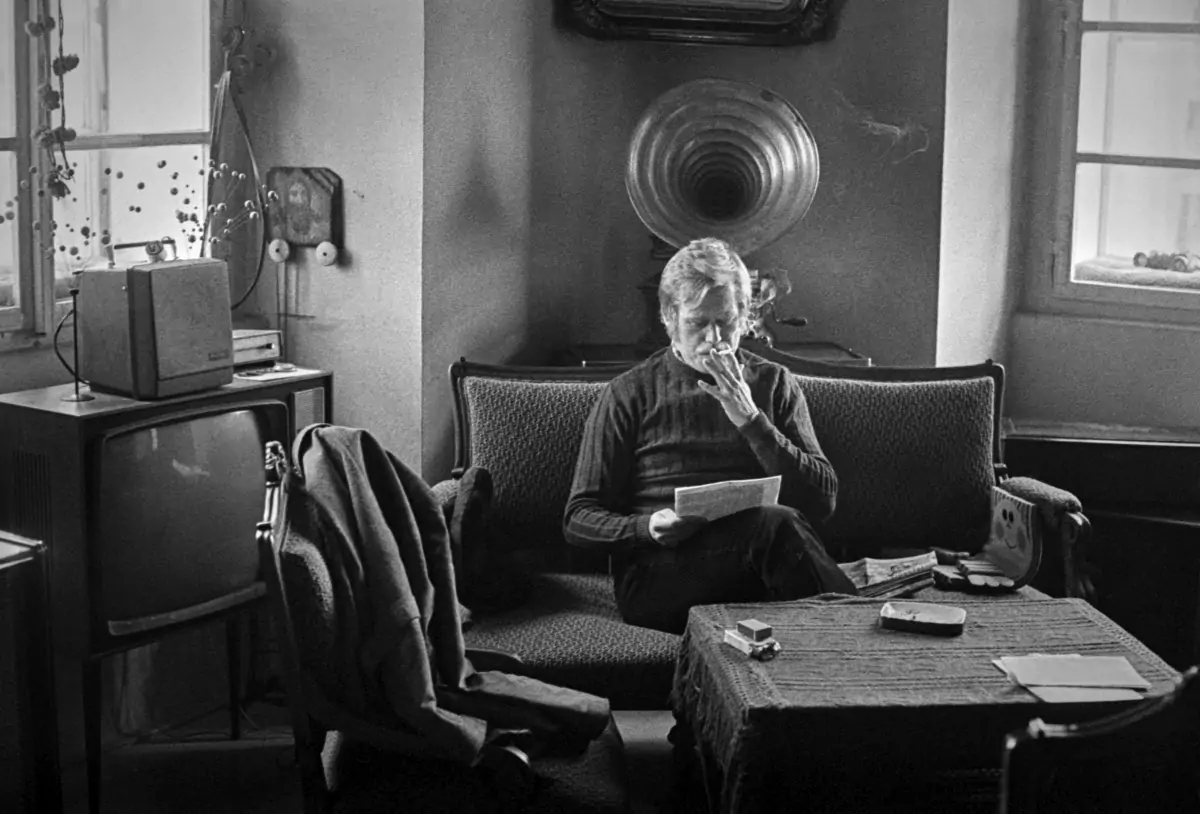
Club / News / Program
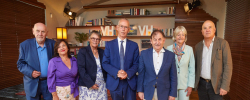
Three candidates shortlisted for the 2023 Václav Havel Prize 05/09/23
The selection panel of the Václav Havel Human Rights Prize, which rewards outstanding civil society action in defence of human rights in Europe and beyond, has today announced the shortlist for the 2023 Award. Meeting in Prague today, the panel – made up of independent figures from the world of human rights and chaired by the President of the Parliamentary Assembly of the Council of Europe (PACE) Tiny Kox – decided to shortlist the following three nominees, in alphabetical order: More
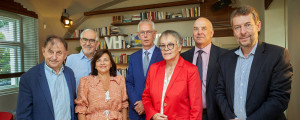
Three candidates shortlisted for the 2022 Václav Havel Human Rights Prize 06/09/22
The discussion among the seven-member jury helmed by the president of the Parliamentary Assembly of the Council of Europe centred on the importance of the issue of human rights during this tense period. The finalists include Vladimir Kara-Murza, a political prisoner and leading Russian democracy campaigner; Ukraine’s 5 AM Coalition, which gathers evidence of human rights abuses stemming from Russia’s invasion of the country; and Hungary’s Rainbow Coalition defending LGBTQIA+ rights. “This year’s selection reflects the central role that human rights play in the current European crisis,” says Michael Žantovský, jury member and executive director of the Václav Havel Library, which bestows the prize in cooperation with the Parliamentary Assembly of the Council of Europe and Nadace Charty 77.
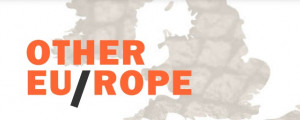
The Other Europe 27/04/22
Dear Friends, After three years we have completed the international project The Other Europe, during which, in cooperation with partner institutions, we have processed and made public recordings of interviews shot in 1987 and 1988 behind the Iron Curtain, and in exile, with important representatives of the opposition and the arts, as well as random citizens. Over those three years we have prepared video, audio and text of 106 interviews in speakers’ native languages and English translation. Despite public health restrictions in the Covid period, we have jointly prepared 16 international conferences and public presentations in six Central and Eastern European states. More
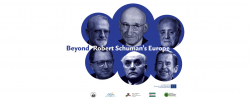
From Schuman to Havel – what next? 16/02/22
The Václav Havel Library is a proud partner of the project Beyond Robert Schuman’s Europe More
Program for February 2014<>
entry-free
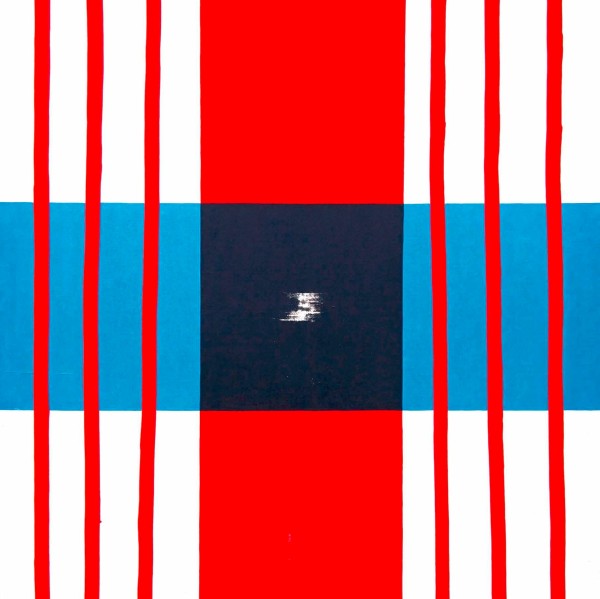
Jan Vaněk: And the spirit hovered over me
- Where: Montmartre Gallery
- When: January 14, 2014, 19:00 – February 9, 2014, 12:00
Opening of an exhibition of abstract paintings by Jan Vaněk from the turn of the 1980s and the 1990s.
Jan Vaněk (born 1957, Tábor) was a member of the group Pilky (Radek Brož, Roman Dvořák, Roman Trabura) that were active on the Czech visual art scene in the 1980s. The graduate of a secondary industrial school in České Budějovice, he is a self-taught artist. Alongside Pilky group shows, his work has been displayed in, for instance, the legendary exhibition Popis jednoho zápasu. Česká výtvarná avantgarda 80. let (Description of a Struggle: The Czech Art Avant-Garde of the 1980s ) put on by the Ševčíks, a married couple. He currently works as a construction technician.
This exhibition of Jan Vaněk’s paintings from the turn of the 1980s and the 1990s is more than a mere look back at the past. His large abstract canvasses have nothing in common with either abstraction in the sense of mental abstraction or abstraction that experiments with colour and underlay as a medium.
In his art, Jan Vaněk works with purely Christian symbols and Christian symbolic colours. It could be said that each of his paintings represents the artist’s creed, a declaration of faith, expressed in modern language intersecting with vertical and horizontal lines and overlapping fields of colour. Though he has chosen to employ the abstract language of geometric shapes to express himself, the imperfection of the human world is also present via the author’s brushwork, which contradicts machine precision. The presence of the human element is highlighted by nicks and scars and unintended interventions in the surface of the paintings arising through time; these give the canvases an added level of meaning.
In the central painting Blood and Water, encroachment onto a black square (the centre of Latin cross with blue and red borders) enhances the symbolism of the futility and death of man. It also refers to the crucified body of Christ, from whose pierced side flow water and blood, notionally coursing from several sources on the surface of the canvas. The subject of human immortality, which the cross symbolises, is also present in other pieces. In the painting Resurrection an expanding cone of light, yellow in colour, rises to the sky from a dark horizon, symbolising union with God.
Jan Vaněk has not painted for several years. His work as an artist is recalled by the Marian painting on the façade of his house in Horní Hrachovice, where Bohemia meets Vysočina and where he lives quietly with his family, far removed from the world of art. His late 1980s and early 1990s paintings attest to the artist’s sober and honestly formulated attitude not only to his faith but to the world itself.
Marianna Placáková

Debates with Respekt
- Where: Montmartre Gallery
- When: February 3, 2014, 19:00 – 21:00
Debate with Respekt editor Tomáš Sacher on the subject of the 10 years since the Czech Republic’s accession to the EU. Guests: Vladimír Špidla, Petr Pithart.
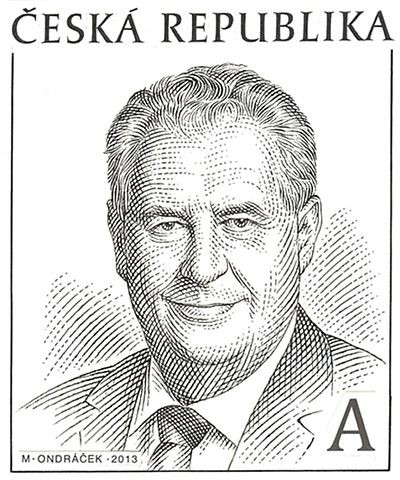
Development of the President's interpretation of the Constitution recently and the emerging government
- Where: Montmartre Gallery
- When: February 4, 2014, 18:00 – 20:00
What does it mean to be an “expert” in politics?
Journalist and analyst Jan Macháček will discuss that question and more with his guests. Among those invited are Petr Fischer, Jan Wintr and Jan Kudrna.
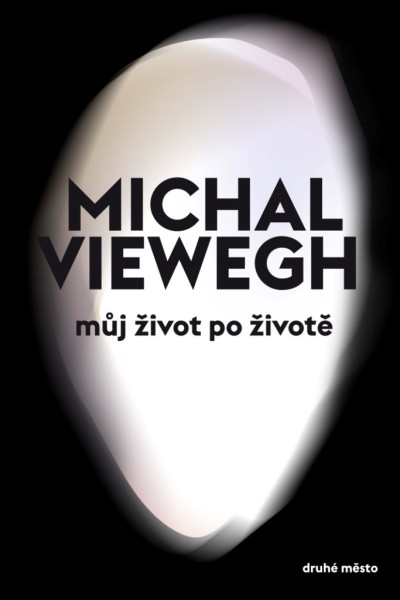
Total Viewegh
- Where: Montmartre Gallery
- When: February 5, 2014, 19:00 – 21:00
The 26th book by the best-selling Czech novelist describes his sudden serious illness, subsequent battle for life and the life that he has been left with.
Following a reading by Michael Viewegh, Jiří Peňás, the head of newspaper Lidové noviny’s arts section and a literary critic, will speak.
Presented by Martin Reiner, director of the Druhé město publishing house.
“Six months ago I was enjoying wines from Argentina. But now I’m as half-blind as a mole, I’m not allowed wine, I can’t remember anything and everything scares me. All anti-depressants do is stop me from jumping off Nusle Bridge. Painful conditions incompatible with life have turned into an annoying, sleepy helplessness…”
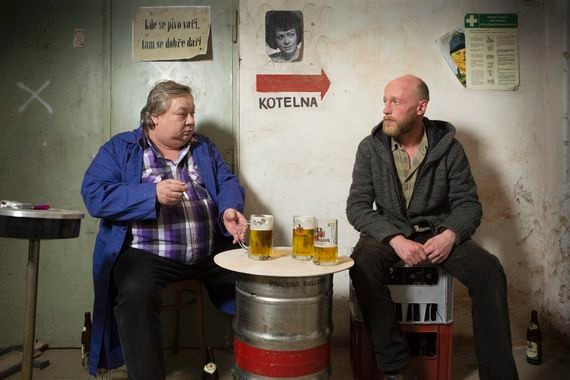
Václav Havel: Audience
- Where: Montmartre Gallery
- When: February 6, 2014, 19:00 – 21:00
“It’s something essential, for God’s sake!”
Production of Václav Havel’s one-act play by Ostrava’s Divadlo Petr Bezruč.
An ingenious play from the period before the dramatist became president.
Directed by: Štěpán Pácl and collective
Sládek: Norbert Lichý
Vaněk: Jiří Müller
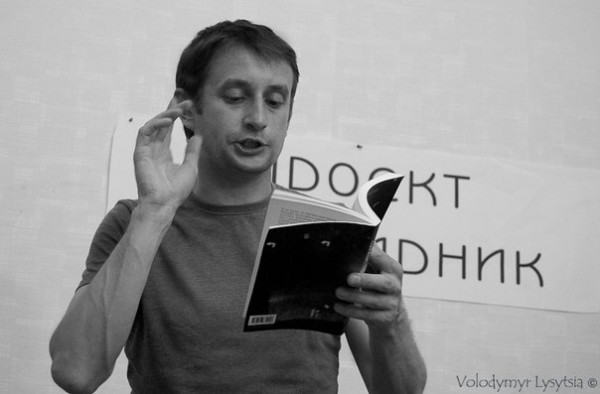
Serhiy Zhadan: My Ukraine today... and poems
- Where: Montmartre Gallery
- When: February 7, 2014, 19:00 – 21:00
Presentation of the poetry collection Dějiny kultury začátku století [History of the Culture of the 20th Century] (Nakladatelství Petr Štengl publishing house, 2013) with the participation of its writer, Ukrainian poet and novelist Serhiy Zhadan.
After the reading a debate will be held on the subject: Ukraine.
Translators Alexej Sevruk and Miroslav Tomek will host the evening.
Serhiy Zhadan (born 1974, Starobilsk, Ukraine), who grew up during perestroika, the breakup of the Soviet Union and the birth of independent Ukraine, is regarded as a spokesperson for a generation and has written original prose, short stories and several novels. In 2011, the publishers Fra brought out a translation of his short story collection Big Mac (published in Ukrainian in 2003). Fragments of his work have also appeared in Czech in magazines
(Host, Tvar, Plav, iLiteratura.cz, Porohy, Psí víno) and in two Czech anthologies of contemporary Ukrainian prose: Expres Ukrajina [Express Ukraine] (Kniha Zlín, 2008) a Ukrajina, davaj, Ukrajina! [Ukraine, Give, Ukraine!] (Větrné mlýny, 2012).
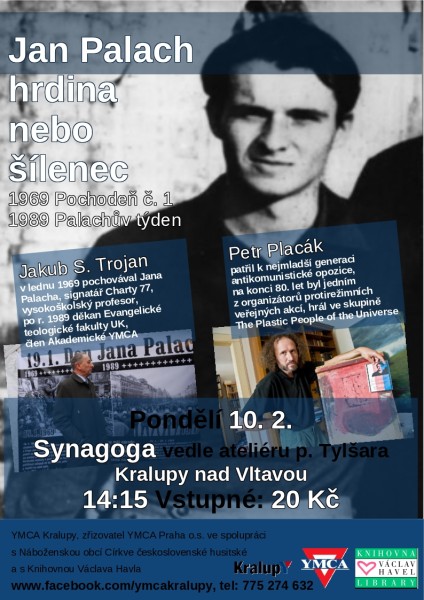
Jan Palach: Hero or Madman
- Where: Synagogue, Kralupy nad Vltavou
- When: February 10, 2014, 14:15 – 16:15
Commemorations of the anniversary of the self-immolation of Jan Palach and the events of Palach Week are continuing in February. Petr Placák and Jakub Trojan will visit the synagogue in Kralupy nad Vltavou on Monday 10.2. Visitors will also see footage from the original Video Journal.
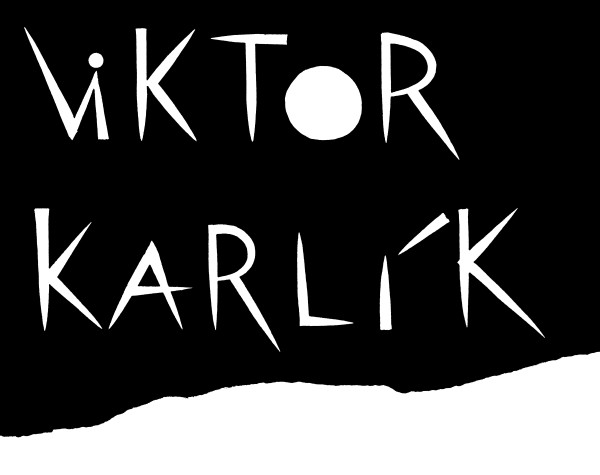
Viktor Karlík: Signs and other work
- Where: Montmartre Gallery
- When: February 11, 2014, 19:00 – March 9, 2014, 12:00
Opening of an exhibition of art by Viktor Karlík.
The music group Ženy will perform.
The exhibition runs until 9.3.2014.
Viktor Karlík (born 1962, Prague) is a painter and graphic artist who also creates sculptures and objects. The roots of his art stretch back to the 1980s underground scene. In 1981 he graduated from a Prague secondary school specialising in graphic art. He was later employed at the depositary of the National Gallery in Prague’s collection of oriental art, including as a restorer. In 1985 he co-founded the samizdat magazine Jednou nohou (One Leg, later Revolver Revue), where he serves to this day as a graphic artist and editor. As well as free art and editorial work, he also devotes himself to book graphics. His most recent substantial retrospective, entitled Underground Work, took place at the West Bohemian Gallery in Pilsen in 2012.
The exhibition Signs and Other Work takes in serigraphy, linocut and a sculpture created by Viktor Karlík in the last eight years and frequently dedicated to literary figures who have been a source of inspiration to the artist; these include a portrait of a Libeň graphic artist and visionary (Tribute to Vladimír Boudník, 2009), quotations from the writings of Céline, Gombrowicz and Musil and a statement by Marcel Duchamp.
Though it could seem that Karlík’s current graphics have nothing in common with his early work, their backgrounds share a similar basis. As regards form, we can find in his serigraphy prototypes in expressionist woodcuts inspired by the medieval tradition, to which the artist has a close attachment. An archaic stroke, elementarisation of shape and the joke stemming from the intersection of textual and pictorial content are elements that have for a long time been appearing in his bronze sculptures, reliefs and objects and, in some cases, paintings.
The artist’s activities could be compared to a journey in cycles and between them, when in his work he constantly returns to, builds on and combines certain subjects. So, for instance, the motif of a dustbin, from which in 1990 he created a gold-coloured Pop Art object, appears as if accidentally on the body of the crazy poet in a piece entitled Magor ve městě (Magor in the City) (2011). Sprej (Spray) (2009) has a similar form, with the graphic work supplemented by a diary-style record connected with the Prague district of Smíchov; a personal testimony (in this case, thanks to a connection to the place the author has lived since birth) is linked to one of objective character (the object-spray was originally captured using a documentary approach).
The artist’s choice of figures to portray and quote can be regarded in the same way. Thanks to the artist’s systematic creative and journalistic work, many of them have not been long confined to the periphery but are written indelibly into Czech cultural history. As if Viktor Karlík had chiselled the Signs into stone. And the number of tombstones is increasing inexorably.
Marianna Placáková
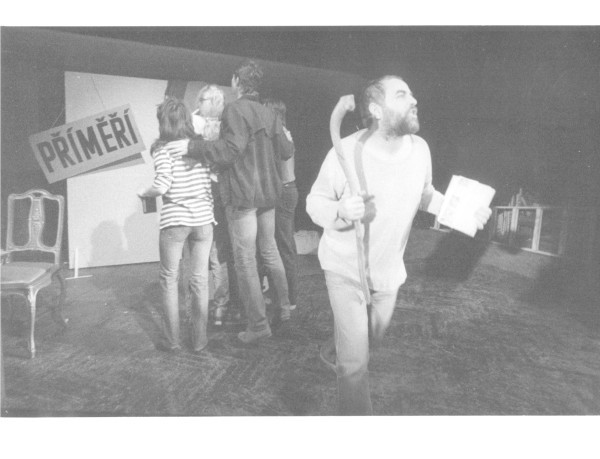
Challenges, paradoxes, plays: Václav Havel - III. Tomorrow
- Where: Montmartre Gallery
- When: February 13, 2014, 19:00 – 21:00
A historical mediation in five acts. A theatre play by Václav Havel that differs from his others in every way, including non-Havelesque construction and dialogues and origin, as after almost 20 years of being banned he was commissioned to write it by the then “cult” Divadlo na provázku theatre and it partially assumed the theatre’s specific brand of poetics. The play was written in 1988 on the 70th anniversary of the creation of Czechoslovakia, when the crust of rigid totalitarianism was slowly, inconspicuously but surely, coming apart…
Our guest will be Petr Oslzlý, director and dramaturge of the Divadlo na provázku and a long-term close friend and collaborator of Václav Havel’s. Other guests are: Eva Salzmannová and Vladimír Javorský
This series dedicated to the plays of Václav Havel is organised by Anna Freimanová.
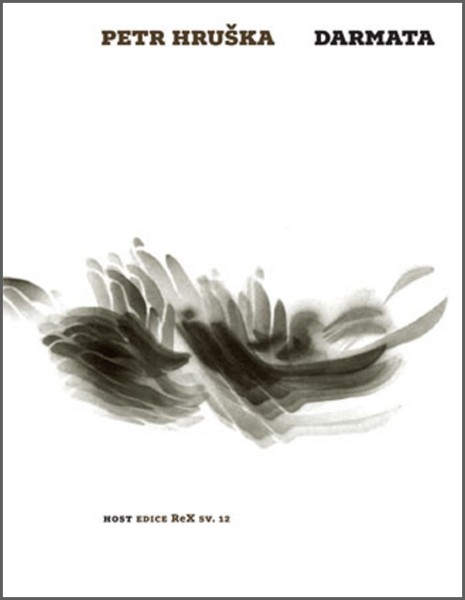
Darmata
- Where: Montmartre Gallery
- When: February 18, 2014, 19:00 – 21:00
Poet Petr Hruška, who has won such awards as the 2013 State Prize for Literature, will read from his latest book Darmata and more, while Yvetta Ellerová will sing poems set to music. Though not planned, dancing is not ruled out.
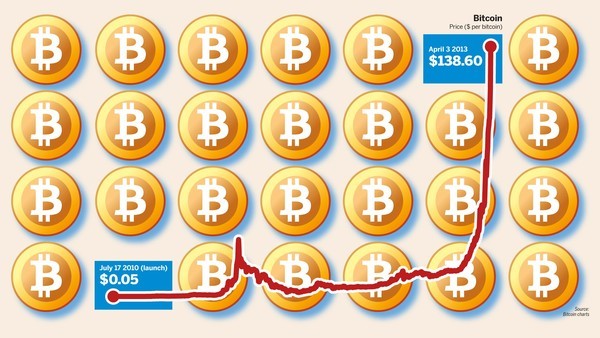
Electronic currencies in the modern economy - passing mania or harbringer of revolution?
- Where: Montmartre Gallery
- When: February 19, 2014, 18:00 – 20:00
According to the founder of the original Swedish Pirate Party, Rickard Falkvinge, “bitcoin is going to do to banks what email did to the postal system.” How realistic is that prediction and what can be expected of a phenomenon that is slowly ceasing to be a game among the hacker community and becoming a phenomenon covered daily in the media?
A broad range of guests, from the bitcoin community and from modern banks, will discuss just this in a debate hosted by Vít Macháček.
The entire event is being organised by the Behavioural Economics Society, an association of students predominantly from Prague’s University of Economics. Special thanks belong also to Business IT Club.
The invitation was accepted by:
Jaroslav Brychta, X-Trade Brokers, who will explain the advantages of electronic currencies, Luboš Mokráš, macroeconomical analyst from Česká spořitelna, who will explain the disadvantages. Prof. Ing. Zbyněk Revenda, CSc. from Fakulta financí a účetnictví VŠE, will bring academical background to the debate and Vít Kalvoda will present the phenomena of "local currencies"
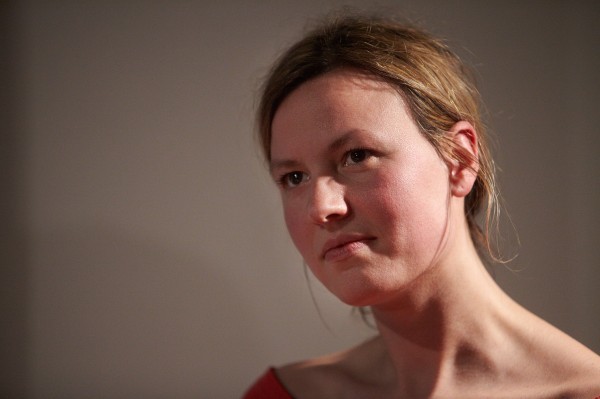
Dora Kaprálová: A winter book about love
- Where: Montmartre Gallery
- When: February 20, 2014, 19:00 – 21:00
Presentation of new prose work by the Brno and Berlin based poet and critic Dory Kaprálová.
Zimní kniha o lásce (A Winter Book About Love) (Archa-Zlín, February 2014) was written in response to the prose piece “One Woman” by Hungarian novelist Peter Esterhazy.
Alongside the author, Emil Hakl and Kateřina Rudčenková will welcome the book.
“I read Esterhazy’s texts, ironic, macho, amorous, masculine, although somewhat weighed down by the marble aesthetic of a supreme stylist. Sorrowfully and slightly crossly, I threw the book aside. And from January to February I wrote dear Esterhazy Winter Book, a package of literary ‘vignettes’… It’s a book about men, but is also perhaps at the same time about one polymorphous and elusive man; that’s why it’s about love, about the winter of love.”
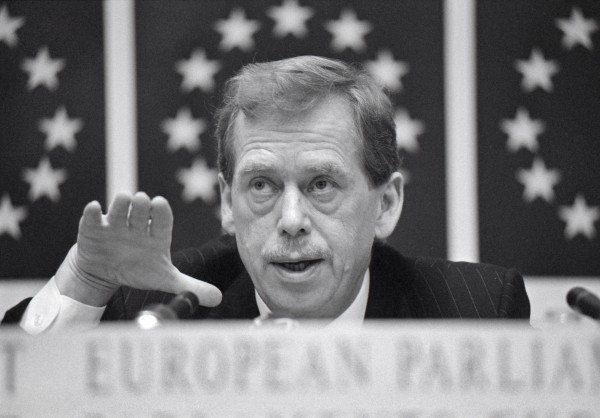
Vaclav Havel European Dialogues, Prague conference: The Citizen, power and democracy in the European
- Where: DOX Centre for Contemporary Art
- When: February 21, 2014, 13:00 – February 22, 2014, 08:45
The Václav Havel European Dialogues is an international project that aims to initiate and stimulate a discussion about issues determining the direction of contemporary Europe while referring to the European spiritual legacy of Václav Havel.
Videorecordings:
FR 21. 2. 2014
Welcome and Conference Opening
Europe and the Crisis of Democratic Capitalism
Reinventing the European Project
Evening Conversation: What Europe? What Democracy?
Glass of Wine with H. E. Michael Žantovský
SA 22. 2. 2014
Europe and the Limits of Civil Society. From consensus to a conflict-driven policy?
Federalism: The American vs. The European Way
Detailed program and participants´bios are available here.
The conference was held in English and Czech and was simultaneously translated into Czech and English.

Debate of candidates for the post of director of the Institute for the Study of Totalitarian Regimes
- Where: Montmartre Gallery
- When: February 24, 2014, 19:00 – 21:00
The Institute for the Study of Totalitarian Regime has had a year filled with turbulence. A new director ought to bring a necessary alleviation of the situation. Come and listen to a debate of candidates for the highest post at an important institution, chaired by leading journalist Petr Brod. These candidates confirmed their participation: Viktor Meca, Adrian Portmann, Karel Světnička.
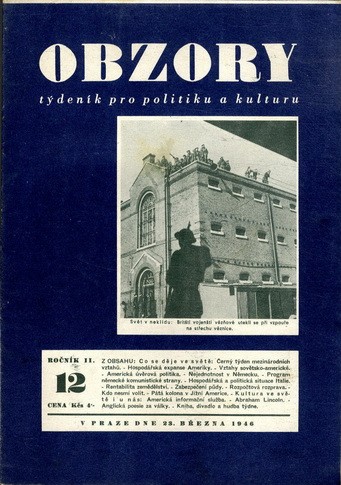
Milan Drápala: “Dissidents” of the Third Republic (1945–1948)
- Where: Montmartre Gallery
- When: February 25, 2014, 19:00 – 21:00
1945 delivered freedom and a great deal of hope in the construction of a democratic society to the revived Czechoslovakia. However, threats appeared on the horizon. These arose from the Communists’ thirst for power supported by Soviet dominance but were also encoded in the National Front political system and the post-war collective mentality. Attempts at a systemic critique and change of regime in the Third Republic were highly exceptional and unsuccessful in the Czech environment; nevertheless, there is noteworthy evidence of intellectual non-conformism and political foresight. This paper introduces figures representing these marginal positions in the discourse of the time and outlines their critiques.
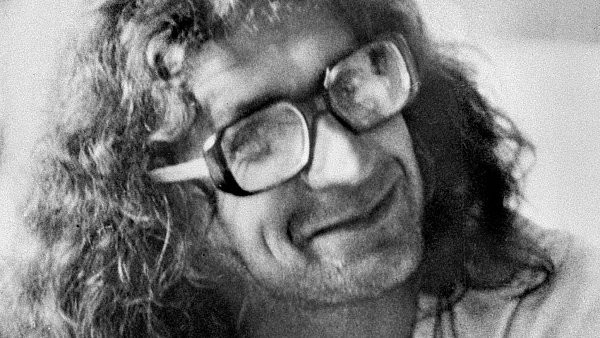
The Czech underground 1: The politics of memory between the control of society and ethics - a theore
- Where: Montmartre Gallery
- When: February 26, 2014, 10:30 – 12:30
First in a second season of lectures dedicated to the Czech underground. The Czech Underground series is organised by the Historical Sociology department at Charles University’s Faculty of Humanities and the Václav Havel Library and headed by sociologist Nicolas Maslowski.
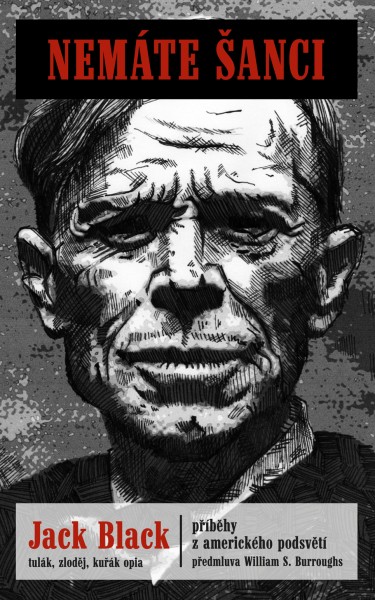
Czech undergound, American underworld
- Where: Montmartre Gallery
- When: February 26, 2014, 19:00 – 21:00
The Pulchra publishing house presents two books issues last year, both of which tell of life in the underground. The first is a Czech translation of the autobiographical novel You Can’t Win, a collection of stories from the American underworld of the 1920s by Jack Black, a hobo, drug addict and criminal who became an icon to the whole Beat Generation. The second, entitled Trable den co den (Trouble Day After Day), is another important testimony from Otakar “Alfréd” Michl about the Czech underground, from the start of the 1970s until the present day.
Otakar “Alfréd” Michl and Anežka Michlová will read from the book, while translator Tomáš Míka will read from his version of You Can’t Win.
Eugen Brikcius will officially launch Trouble Day After Day, while Otakar “Alfréd” Michl, Pepa Janíček, Honza Pech and Milan “Dino” Vopálka will perform together.
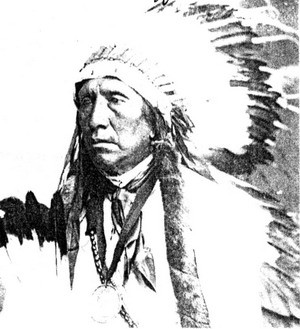
Markéta Křížová: The Czech lands, Europe and the world
- Where: Montmartre Gallery
- When: February 27, 2014, 19:00 – 21:00
Indians in the USA: The conquest of the Wild West, the period construct of “human rights”, reservations and the fight for eminent domain
Lecture in a series conceived by Markéta Křížová (Centre for Ibero-American Studies at the Arts Faculty of Charles University).
Indians have a unique position in the United States that is not comparable with that of other ethnic groups and stems from their status as the “original inhabitants” of North America. During the 20th century there were numerous attempts to deal with the “Indian question”; however, they were characterised by an absence of systematic approach or coordination. Efforts at conservation alternated periodically with the nullification of the Indians’ privileged position. In the second half of the 20th century, a movement to boost the original inhabitants’ eminent domain divided US public opinion and cast doubt on the very fundamentals of the American political system. What is the current position of the Indians, what influence do they have on public affairs and what are their prospects for the future?
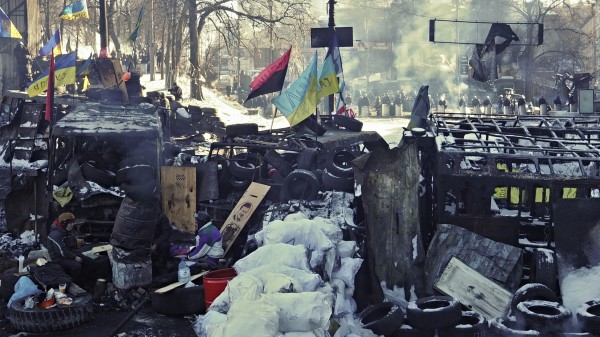
Eugen Kukla: Testimony from the streets of Kiev
- Where: Vaclav Havel Library, Řetězová 7, Prague
- When: February 28, 2014, 18:00 – April 6, 2014, 12:00
The exhibition of documentary photographs by Eugen Kukla.
Havel Channel
Havel Channel je audiovizuální projekt Knihovny Václava Havla, jehož cílem je šířit myšlenkový, literární a politický odkaz Václava Havla, bez ohledu na vzdálenost, zeměpisné hranice či nouzové stavy. Jeho páteř tvoří debaty, vzdělávací projekty a rozhovory. Velký prostor je věnován též konferencím, autorským čtením, záznamům divadelních inscenací a koncertům. Audiovizuální projekt Knihovny Václava Havla Havel Channel se uskutečňuje díky laskavé podpoře Karel Komárek Family Foundation.
Publications / E-shop
The central focus of the Library’s publishing programme is the life and work of Václav Havel, his family and close collaborators and friends. For clarity, the programme is divided into six series: Václav Havel Library Notebooks, Václav Havel Library Editions, Student Line, Talks from Lány, Václav Havel Documents, Works of Pavel Juráček and Václav Havel Library Conferences. Titles that cannot be incorporated into any of the given series but which are nonetheless important for the Library’s publishing activities are issued independently, outside the series framework.
Diary IV. 1974–1989
399,- CZK
Foolish Writing
299,- CZK
Havel to the Castle
149,- CZK
Kilián Nedory
199,- CZK
Case for a Novice Headsman
199,- CZK
I am not sad. Audience & Vernissage
129,- CZK
To the Castle and Back
249,- CZK
I am the Gypsy Baron
299,- CZK
Conferences & prizes
Václav Havel European Dialogues
The Václav Havel European Dialogues is an international project that aims to initiate and stimulate a discussion about issues determining the direction of contemporary Europe while referring to the European spiritual legacy of Václav Havel. This idea takes its main inspiration from Václav Havel’s essay “Power of the Powerless”. More than other similarly focused projects, the Václav Havel European Dialogues aims to offer the “powerless” a platform to express themselves and in so doing to boost their position within Europe.
The Václav Havel European Dialogues is planned as a long-term project and involves cooperation with other organisations in various European cities. Individual meetings, which take the form of a conference, are targeted primarily at secondary and third-level students, as well as specialists and members of the public interested in European issues.
Prague 2022Olomouc Prague 2023PragueMnichov 2020Brussels 2020Prague 2019Brussels 2019Prague 2018Brussels 2018Europe at the Crossroads (e-book)Prague 2017Brussels 2017Prague 2016Brussels 2016Prague 2015Brussels 2015Brussels 2014Berlin 2014Prague 2014 - J. GauckBruges 2014Prague 2014
Václav Havel Human Rights Prize
The Václav Havel Human Rights Prize is awarded each year by the Parliamentary Assembly of the Council of Europe (PACE) in partnership with the Václav Havel Library and the Charta 77 Foundation to reward outstanding civil society action in the defence of human rights in Europe and beyond.
11th Year of the Prize (2023)10th Year of the Prize (2022)9th Year of the Prize (2021)8th Year of the Prize (2020)7th Year of the Prize (2019)6th Year of the Prize (2018)5th Year of the Prize (2017)4th Year of the Prize (2016)3rd Year of the Prize (2015)2nd Year of the Prize (2014)1st Year of the Prize (2013)History of the prize
Havel - Albright Transatlantic Dialogues
Since the first Václav Havel Transatlantic Dialogues at GLOBSEC and FORUM 2000 conferences last year, we have lost another stalwart advocate of the transatlantic bond and of the need to face threats to democracy and international order together on both sides of the Atlantic, the former US Secretary of State Madeleine Albright. In view of the close bond between Václav Havel and Madeleine Albright and, after Havel's death, between the Secretary and the Library, the Václav Havel Library, with the approval of Madeleine Albright's family, renamed and rebranded the program as The Havel-Albright Transatlantic Dialogues (HATD), after the two major figures with roots in Central Europe who have personified the bond. Together, Václav Havel and Madeleine Albright symbolize the transatlantic relationship and the fundamental values underpinning it perhaps better than any other two people in recent history. The upcoming Dialogues “The Indispensable Woman: The Legacy of Madeleine K. Albright”, at the FORUM 2000 conference on September 1, and at the “Havel and our Crisis” conference at Colby College, ME, on September 28, will thus become venues for a well-deserved tribute to the pair we all respected and admired.
Transatlantic Dialogues 2021Transatlantic Dialogues 2022HATD 2022 Prague
Václav Havel
Václav Havel
* 5. 10. 1936 Praha
† 18. 12. 2011 Hrádeček u Trutnova
- spisovatel a dramatik, publicista a filozof
- jeden z trojice prvních mluvčích Charty 77
- vůdčí autorita československé společenské změny v listopadu 1989
- poslední prezident Československa a
- první prezident České republiky
- celoživotní zastánce lidských práv a svobod doma i ve světě.
Educational projects
Archive / Documentation centre / Research projects
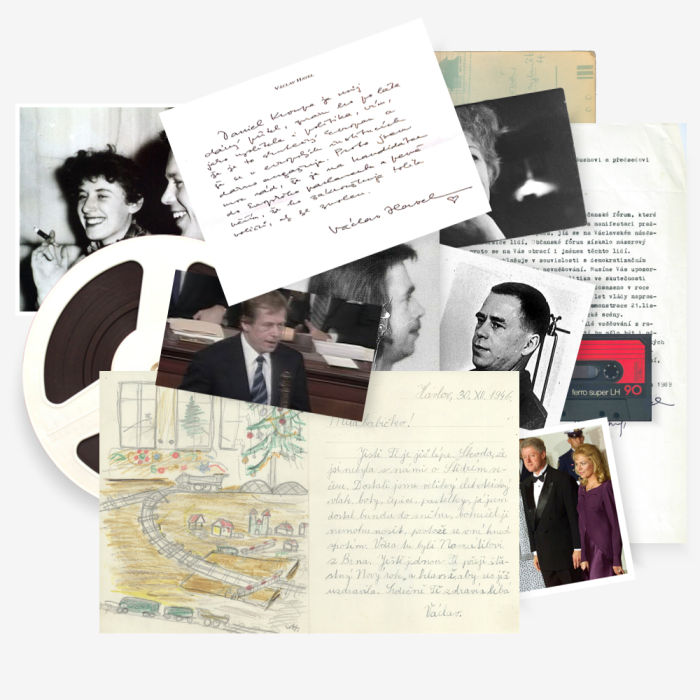
The Václav Havel Library is gradually gathering, digitizing, and making accessible written materials, photographs, sound recordings and other materials linked to the person of Václav Havel.
- 71121 records in total
- 28050 of events in the VH's life
- 2831 of VH's texts
- 2125 of photos
- 403of videos
- 568of audios
- 6602of letters
- 15101of texts about VH
- 8269 of books
- 40737of bibliography records
Access to the database of the VHL’s archives is free and possible after registering as a user. Accessing archival materials that exist in an unreadable form is only possible at the reading room of the Václav Havel Library, Ostrovní 13, 110 00 Prague 1, every Tuesday (except state holidays) from 9:00 to 17:00, or by prior appointment.
We will be glad to answer your queries at archiv@vaclavhavel-library.org.
Sign in (registered users only)
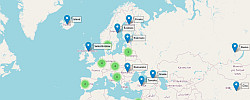
Havel in a nutshell
The virtual exhibition Václav Havel in a Nutshell places the life story of Václav Havel in the broader cultural and historic context in four chronologically distinct chapters with rich visual accompaniment. The exhibition is supplemented by the interactive map Flying the World with Václav Havel, which captures in physical form Havel’s global “footprint”.
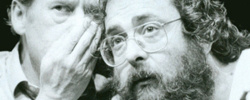
Vladimir Hanzel's revolution
Collage of recollections, images and sound recordings from Vladimír Hanzel, President Václav Havel’s personal secretary, bringing the feverish atmosphere of the Velvet Revolution to life.
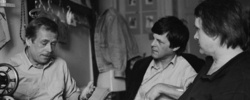
Václav Havel Interviews
A database of all accessible interviews given to print media outlets by the dramatist, writer and political activist Václav Havel between the 1960s and 1989. The resulting collection documents the extraordinary life story of an individual, as well as capturing a specific picture of modern Czechoslovak history at a time when being a free-thinker was more likely to lead to jail than an official public post.
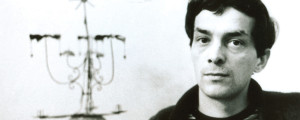
Pavel Juráček Archive
The Pavel Juráček Archive arose in February 2014 when his son Marek Juráček handed over six banana boxes and a typewriter case from his father’s estate to the Václav Havel Library. Thousands of pages of manuscripts, typescripts, photographs, documents and personal and official correspondence are gradually being classified and digitalised. The result of this work should be not only to map the life and work of one of the key figures of the New Wave of Czechoslovak film in the 1960s, but also to make his literary works accessible in the book series The Works of Pavel Juráček.
The aim of the Václav Havel Library is to ensure that Pavel Juráček finds a place in the broader cultural consciousness and to notionally build on the deep friendship he shared with Václav Havel. Soon after Juráček’s death in 1989 Havel said of him: “Pavel was a friend of mine whom I liked very much. He was one of the most sensitive and gentle people I have known – that’s why I cannot write more about him.”
All about Library
The Václav Havel Library works to preserve the legacy of Václav Havel, literary, theatrical and also political, in particular his struggle for freedom, democracy and the defence of human rights. It supports research and education on the life, values and times of Václav Havel as well as the enduring significance of his ideas for both the present and future.
The Václav Havel Library also strives to develop civil society and active civic life, serving as a platform for discussion on issues related to the support and defence of liberty and democracy, both in the Czech Republic and internationally.
The main aims of the Václav Havel Library include
- Organizing archival, archival-research, documentary, museum and library activities focused on the work of Vaclav Havel and documents or objects related to his activities, and carries out professional analysis of their influence on the life and self-reflection of society
- Serving, in a suitable manner, such as through exhibitions, the purpose of education and popularisation functions, thus presenting to the public the historical significance of the fight for human rights and freedoms in the totalitarian period and the formation of civil society during the establishment of democracy
- Organizing scientific research and publication activities in its areas of interest
Podpořte nás
We are well aware that freedom and democracy must be nurtured. Here at Ostrovní 13, but also on the audiovisual platform Havel Channel, we strive to do so through our own educational programmes, talks, discussion meetings, books, exhibitions, concerts, theatre performances. We honour Václav Havel's legacy and wish that the Library be a living organism and open to all. That is why our programme is free of charge for everyone. This would not be possible without regular financial support from our supporters. Become one of them...
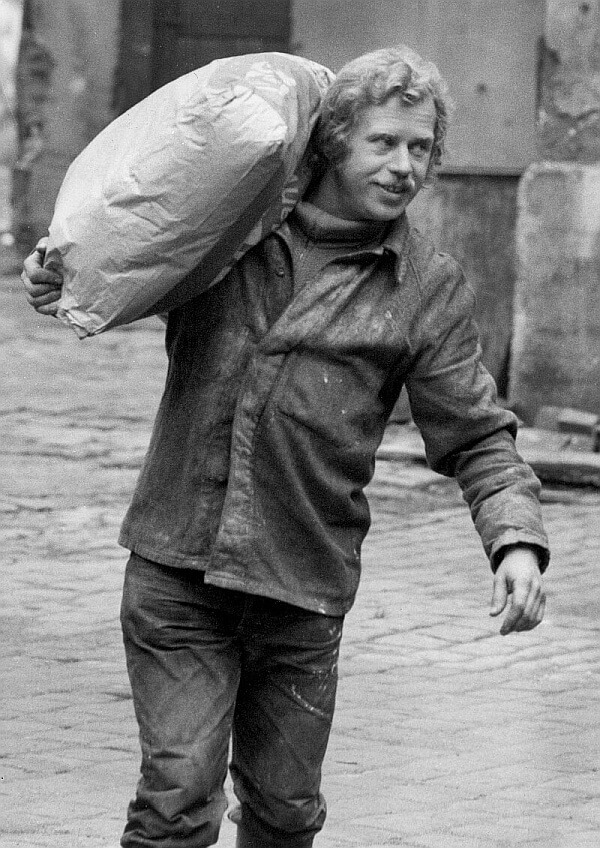
Support us with a financial donation
Does our work make sense to you and do you want to support the activities of the Vaclav Havel Library?
You can easily make a one-time payment by scanning the QR code.
Would you like to contribute regularly? Then we invite you to become a member of the Friends of the Vaclav Havel Library Club. What are the benefits of membership? Find out more.
Help us expand the archive
The Vaclav Havel Library manages an archive of writings, documents, photographs, video recordings and other materials related to the life and work of Vaclav Havel. This archive is predominantly in digital form. If you or someone close to you owns any original texts, correspondence, photographs, speeches or any other work by Vaclav Havel, we would be grateful if you could contact us.
You can donate in other ways too
Supporting a specific charitable or public benefit organization whose activities you appreciate or have been supporting for a long time is also possible through a will. This form of donation is quite common abroad, but in the Czech Republic this tradition is only just taking root.
Share information about us
The Vaclav Havel Library is open to media and promotional cooperation, mutual sharing of links, publishing our banners or information about our events.
For more information, please contact us.
Donations have their rules
At the Vaclav Havel Library, we uphold a transparent, responsible and ethical way of dealing with all those who contribute to fulfilling our purpose and implementing our strategy. Our code of ethics summarizes the basic rules of donations.
Get involved in volunteering
Would you like to get involved as a volunteer? That's great. We welcome anyone who wants to help our work.








